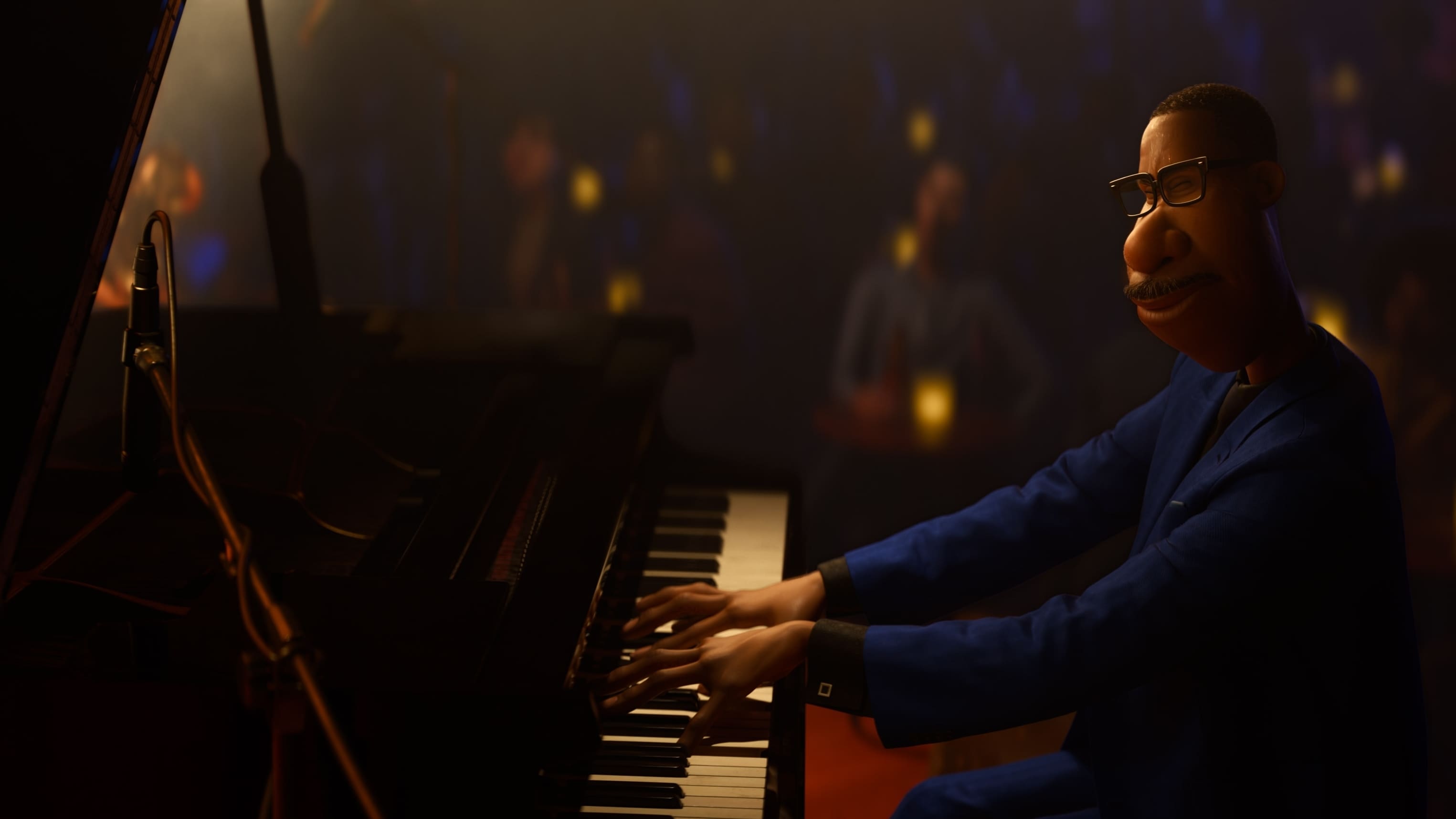What to Watch Verdict
Pixar’s latest is a jazz composition that finds purpose in the quiet moments.
Pros
- +
🎶Extremely impactful in the meditative moments.
- +
🎶Jamie Foxx and Tina Fey are a potent comedic duo.
- +
🎶One of the best musical scores of the year.
Cons
- -
🎶The cutesy world-building doesn't always mesh with the more grounded narrative ambitions.
Soul exists at a strange junction of the Pixar canon. As unfair a comparison as it may be, it shares its most significant DNA with Inside Out, another film directed by Pete Docter, but is at once trying for something very different than the psychoanalysis of that film while being locked into the stylistic trappings that make the superficial similarities between the two films impossible to ignore. Soul does not live up to the raw power of Inside Out — few films could — but it has moments of classic Pixar transcendence, beats that resonate so strongly that it makes the ways in which the film doesn’t quite gel ultimately insignificant. In many ways, Soul is itself like a jazz composition, encouraging you to meditate on the spaces found between plot and structure to find peace.
Joe Gardner (Jamie Foxx) is a struggling jazz musician who teaches middle school band to pay the bills but feels his purpose in life is to make it big on the jazz club stage. After getting his big break in a jazz quartet, Joe suddenly dies, finding himself on the cusp of the Great Beyond. Feeling that his life has just begun, he flees the light at the end of the tunnel, stumbling into the Great Before, an existential nursery school for unborn souls. Through a series of misunderstandings, Joe is assigned as a mentor to the unruly Soul 22 (Tina Fey), who has resisted every mentor previous to Joe so that she can comfortably stay in pre-life limbo. Seeing 22’s redemption as his path back to Earth, Joe tries everything he can think of to get 22 to embrace the life he so desperately wants to return to.
The plot gets surprisingly more complicated than that, but the direction of that plot feels somewhat at odds with the world-building metaphysics the film is premised upon in the first act. The walking tour of the spiritual realm is certainly colorful and entertaining in its own right, but it feels divorced from the Earthbound meat of the film, where the complications of Joe’s life carry the emotional heft. Maybe it’s a design issue, where the rounded, bouncy spirits and the line-drawing higher beings of the world feel eminently more marketable than the more realistically proportioned humans of the film’s New York City, so the film feels split into two vastly different aesthetic and tonal entities that never quite emotionally reconcile. This is where Inside Out achieved a similar split so much better, since the emotional throughline of the story was both inside and out, as it were. Soul’s spirit realm is little more than high-concept first act world-building for the much stronger film to follow.
But once that second act starts, you really do start to feel what screenwriters Docter, Mike Jones, and Kemp Powers are shooting for with this story. Strip away all the expository set-up, and this is a story about a man who is looking for purpose in a world where he feels like that purpose has been denied him. The remarkable thing about Soul is that it’s somehow a frantic race against a ticking clock that has its most impactful moments when it finds the space to breathe and absorb the details of the world. Not the fantasy world it concocts, but in the real world it replicates. It provides an ethos for existence that is at once obviously simple but deeply profound, a meaning of life that appeals to the artistic soul in each of us and undercuts the idea that we are meant for any one life’s goal we’re meant to achieve. Achievement is all well and good, but that’s not what life is, or at the very least not the primary reason for living. There is some immense gravity to that message which should resonate with anyone who has had their goals diverge from their life’s path.
On a nuts-and-bolts level, Soul retains the kind of polish and entertainment value one comes to expect from Pixar’s non-franchise outings. Foxx and Fey have great comic chemistry together, and dialogue is riddled with hilarious gags and single lines that hold more emotional weight than they rightly should. The animation is intricate and detailed, and the moments where the film overlaps its material and spiritual sensibilities are really interesting for how they merge style with substance. The jazz score by Trent Reznor and Atticus Ross is easily one of the best musical compositions to come out this year. For how disjointed as it can sometimes feel, Soul is still a great film that is far more meditative than most family-oriented entertainment and more philosophical than even the majority of Pixar’s stable. It may wrongly feel it needs to lure you in with a more exaggerated aesthetic, but when it allows you to sit with your feelings, it loses the need for such gimmickry and becomes a free-associative masterpiece.
Soul premieres on Disney+ on Dec. 25, 2020.
- Everything you need to know about Disney+
- The best Disney+ movies
- All about the Disney+ Premier Access program
- Disney+ price: What it costs where you live
The latest updates, reviews and unmissable series to watch and more!
Leigh Monson has been a professional film critic and writer for six years, with bylines at Birth.Movies.Death., SlashFilm and Polygon. Attorney by day, cinephile by night and delicious snack by mid-afternoon, Leigh loves queer cinema and deconstructing genre tropes. If you like insights into recent films and love stupid puns, you can follow them on Twitter.


